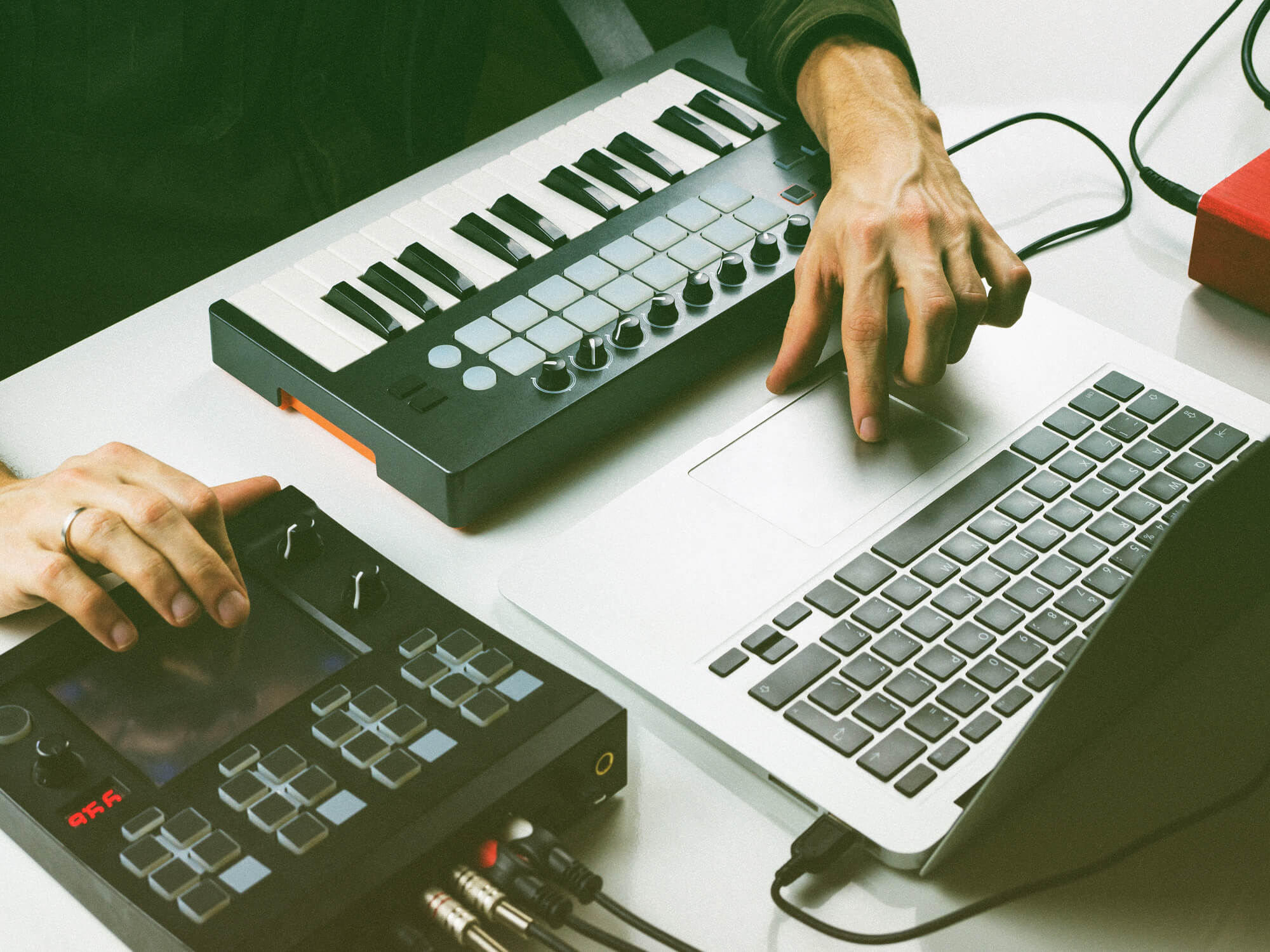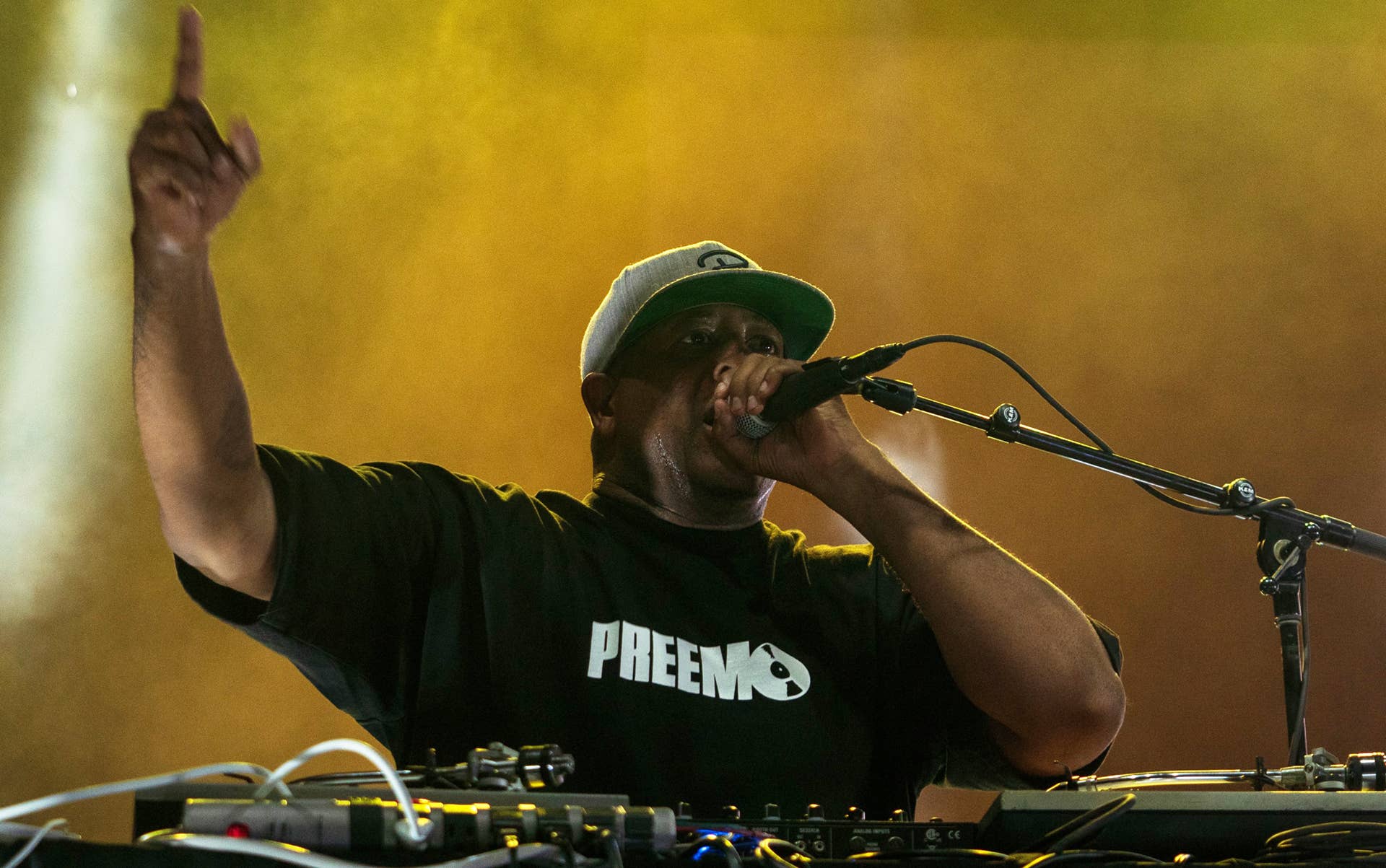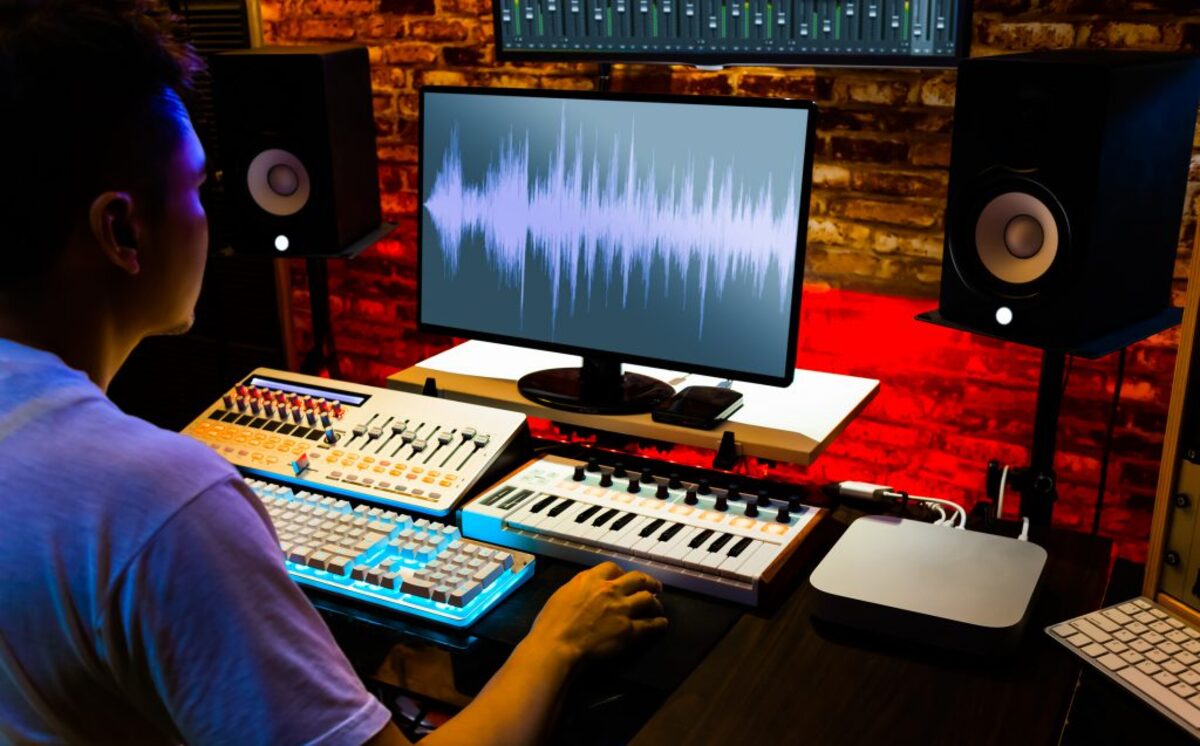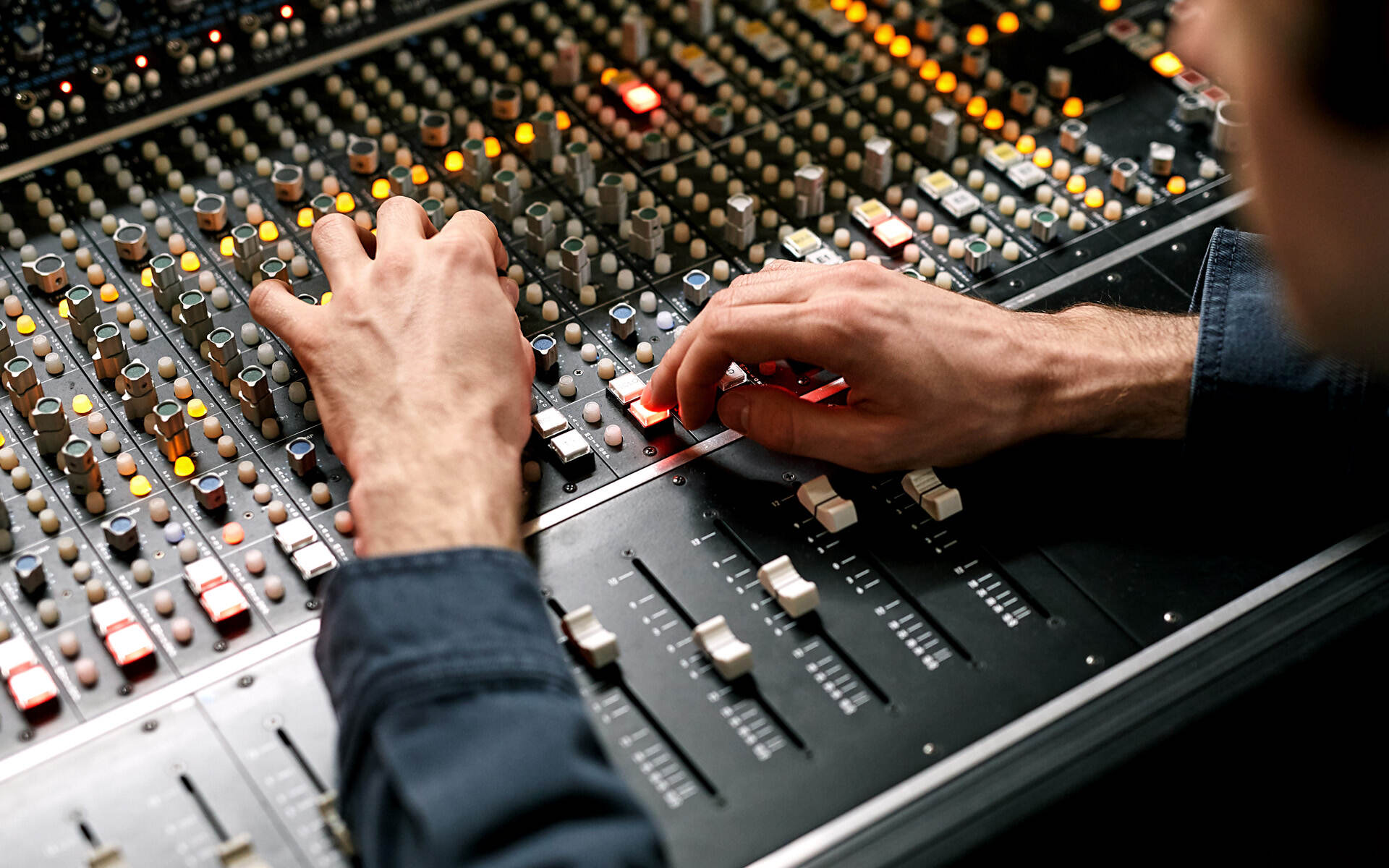Home>Production & Technology>Producer>What Does A Producer Do In Rap Music?
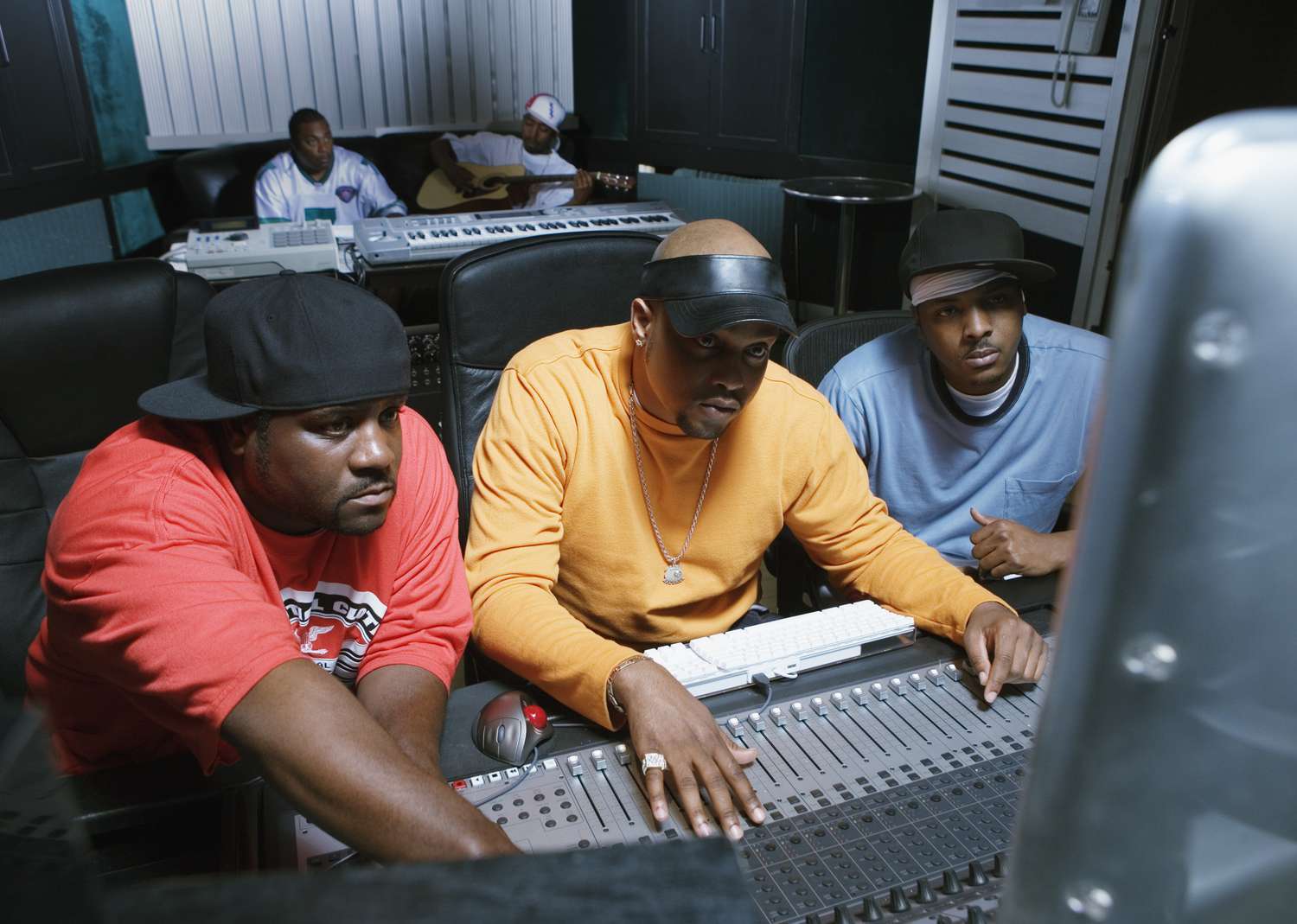

Producer
What Does A Producer Do In Rap Music?
Published: March 6, 2024
Discover the crucial role of a producer in rap music and how they shape the sound and direction of a track. Learn about the creative and technical responsibilities of a producer in the world of hip-hop.
(Many of the links in this article redirect to a specific reviewed product. Your purchase of these products through affiliate links helps to generate commission for AudioLover.com, at no extra cost. Learn more)
Table of Contents
Introduction
In the world of rap music, the role of a producer is pivotal to the creation of chart-topping hits and timeless classics. While the spotlight often shines on the artists delivering powerful lyrics and captivating performances, the producer operates behind the scenes, sculpting the sonic landscape that propels the music to greatness. This article delves into the multifaceted responsibilities of a producer in rap music, shedding light on their creative influence, studio prowess, and collaborative spirit.
The producer's significance extends far beyond the confines of a recording studio. They are the architects of sound, the sonic visionaries who meticulously craft beats, melodies, and arrangements that elevate a song from mere notes and rhythms to an immersive auditory experience. Through their keen understanding of music theory, technology, and artistic vision, producers harness the power to shape the sonic identity of a track, infusing it with emotion, energy, and a distinct character that resonates with audiences worldwide.
As we embark on this exploration of the producer's domain, it becomes evident that their role is not confined to the technical aspects of music production. Rather, producers serve as catalysts for innovation, pushing the boundaries of creativity and sonic experimentation. Their ability to blend traditional musical elements with cutting-edge production techniques enables them to carve out a unique sonic footprint for each project they undertake, ensuring that every beat, every sample, and every sonic texture contributes to the overall narrative of the music.
In the following sections, we will unravel the intricate web of responsibilities that define the producer's role in rap music, from their creative input and studio wizardry to their collaborative synergy with artists. By gaining insight into the multifaceted nature of a producer's craft, we can truly appreciate the depth of their impact on the rap music landscape. Let's embark on this journey to uncover the artistry, innovation, and unwavering dedication that define the essence of a producer in the realm of rap music.
Defining the Role of a Producer
At the core of rap music production lies the enigmatic figure of the producer, a maestro of sound who orchestrates the sonic tapestry that defines a song's identity. The role of a producer transcends the mere act of creating beats; it encapsulates a multifaceted and dynamic set of responsibilities that shape the very essence of a musical composition.
A producer serves as the creative visionary, responsible for conceptualizing and actualizing the sonic landscape of a song. They possess a keen ear for musical nuances, allowing them to discern the subtle interplay of sounds and textures that form the foundation of a compelling track. From crafting infectious drum patterns to sculpting melodic hooks that linger in the listener's mind, the producer's role is akin to that of an artistic architect, meticulously designing the sonic blueprint of a song.
Moreover, a producer assumes the role of a sonic alchemist, blending disparate elements such as samples, live instrumentation, and digital effects to create a cohesive and immersive auditory experience. This amalgamation of sonic elements requires a deep understanding of music theory, production techniques, and an innate ability to infuse emotion and energy into the music. The producer's sonic alchemy transforms a mere collection of sounds into a captivating and emotionally resonant musical narrative.
Beyond their creative prowess, a producer also serves as a technical maestro, harnessing state-of-the-art recording equipment, digital audio workstations, and a myriad of production tools to bring their sonic vision to life. Their expertise in sound engineering, mixing, and mastering ensures that the sonic fabric of a song is finely woven, resulting in a polished and professional sound that captivates audiences.
In essence, the role of a producer in rap music can be likened to that of a master storyteller, weaving together sonic elements to create a compelling narrative that transcends the boundaries of language and culture. Their ability to infuse a song with emotion, energy, and a distinct sonic identity is what sets them apart as the unsung heroes behind the chart-topping hits and timeless classics that define the rap music landscape.
The Producer's Influence on the Music
The influence of a producer on rap music transcends the confines of a recording studio; it permeates every sonic layer, every rhythmic pulse, and every lyrical cadence. At the heart of this influence lies the producer's innate ability to shape the sonic identity of a song, infusing it with emotion, energy, and a distinct character that resonates with audiences on a profound level.
A producer's influence begins with their keen understanding of the nuances of rap music, from its rhythmic intricacies to its lyrical poignancy. With a deep appreciation for the genre's rich heritage and evolution, producers leverage their knowledge to craft beats and melodies that honor rap's legacy while pushing the boundaries of sonic innovation. This unique blend of tradition and innovation forms the foundation of a producer's influence, allowing them to sculpt music that pays homage to the genre's roots while propelling it into uncharted sonic territory.
Furthermore, a producer's influence extends to their adeptness at capturing the zeitgeist of the rap music landscape. By staying attuned to cultural shifts, social dynamics, and artistic trends, producers infuse their music with a timeliness that resonates with contemporary audiences. Whether it's through the integration of cutting-edge production techniques, the incorporation of topical themes, or the collaboration with emerging talents, producers wield their influence to ensure that their music remains relevant and impactful in an ever-evolving musical landscape.
The sonic palette of a song is where the producer's influence truly shines. Through the careful selection of sounds, textures, and sonic embellishments, producers imbue a song with a distinct sonic identity that sets it apart from the myriad of musical offerings. From crafting infectious drum patterns that drive the rhythm forward to sculpting melodic hooks that linger in the listener's mind, producers wield their influence to create a sonic tapestry that captivates and enthralls.
In essence, the producer's influence on rap music is a testament to their artistic vision, technical prowess, and unwavering dedication to shaping the sonic landscape. Their ability to infuse music with emotion, energy, and a distinct sonic identity elevates rap music to new heights, ensuring that their influence reverberates through the annals of musical history.
The Producer's Role in the Studio
The studio serves as the hallowed ground where the sonic visions of rap music come to life, and the producer stands as the maestro orchestrating this creative symphony. Within the confines of the studio, the producer assumes a multifaceted role that encompasses technical expertise, creative direction, and an unwavering commitment to sonic excellence.
At the outset, the producer's role in the studio revolves around harnessing cutting-edge recording equipment, digital audio workstations, and an array of production tools to translate their sonic vision into reality. Their technical prowess extends to sound engineering, where they meticulously capture the nuances of live instrumentation, vocal performances, and sonic textures. This meticulous approach ensures that every sonic element is captured with pristine clarity, laying the foundation for a polished and professional sound.
Moreover, the studio serves as the canvas upon which the producer paints their sonic tapestry, blending disparate elements such as samples, live instrumentation, and digital effects to create a cohesive and immersive auditory experience. With an acute understanding of sonic architecture, the producer meticulously sculpts beats, melodies, and arrangements, infusing the music with emotion, energy, and a distinct character. This process of sonic alchemy requires a keen ear for musical nuances and a relentless pursuit of sonic perfection, resulting in music that transcends the boundaries of the ordinary.
Furthermore, the studio becomes a crucible of creativity under the producer's guidance, fostering an environment where artistic experimentation and sonic innovation flourish. It is within these walls that the producer collaborates with artists, guiding them through the intricacies of vocal delivery, lyrical cadence, and emotional expression. This collaborative synergy breeds a creative energy that permeates every sonic layer, resulting in music that resonates with authenticity and raw emotion.
In essence, the producer's role in the studio is one of unwavering dedication to sonic excellence, creative innovation, and technical mastery. Their ability to harness the studio as a conduit for artistic expression, sonic experimentation, and collaborative synergy underscores their pivotal role in shaping the sonic landscape of rap music. As the studio becomes the crucible where musical ideas are forged into timeless compositions, the producer stands as the guiding force, ensuring that every sonic element coalesces into a compelling and emotionally resonant musical narrative.
Collaborating with Artists
Collaboration lies at the heart of the producer's craft in rap music, serving as the crucible where artistic visions intertwine, creative energies converge, and sonic narratives unfold. The producer's role as a collaborative maestro extends beyond the confines of the studio, encompassing a dynamic interplay of creative synergy, artistic guidance, and an unwavering commitment to elevating the artist's sonic expression.
At the outset of the collaboration, the producer assumes the role of a sonic architect, working in tandem with the artist to conceptualize and actualize the sonic landscape of a song. This collaborative synergy fosters an environment where artistic experimentation and sonic innovation flourish, allowing the artist's creative vision to intertwine with the producer's sonic expertise. Together, they embark on a journey of sonic exploration, sculpting beats, melodies, and arrangements that encapsulate the emotional depth and artistic essence of the music.
Moreover, the producer serves as a mentor and guide, nurturing the artist's artistic expression, vocal delivery, and lyrical cadence. Through insightful feedback, constructive criticism, and a deep understanding of the artist's creative vision, the producer empowers the artist to channel their raw emotion and authentic storytelling into the music. This collaborative mentorship imbues the music with a sense of authenticity and emotional resonance, ensuring that every lyrical cadence and vocal inflection captures the essence of the artist's narrative.
Furthermore, the collaborative process extends to the integration of live instrumentation, vocal performances, and sonic textures, where the producer and artist coalesce their creative energies to craft a cohesive and immersive auditory experience. This harmonious fusion of artistic expression and sonic innovation results in music that transcends the boundaries of the ordinary, resonating with audiences on a profound and visceral level.
In essence, the collaboration between the producer and artist is a testament to the transformative power of creative synergy, artistic mentorship, and unwavering dedication to sonic excellence. As their collaborative energies converge, the music becomes an embodiment of their shared artistic vision, capturing the raw emotion, authentic storytelling, and sonic innovation that define the essence of rap music.
Managing the Creative Process
Managing the creative process in rap music production is a delicate balancing act that requires the producer to navigate the intersection of artistic vision, technical proficiency, and collaborative synergy. At the heart of this management lies the ability to cultivate an environment where creativity flourishes, artistic experimentation thrives, and sonic innovation takes center stage.
The management of the creative process begins with the cultivation of a nurturing and inspiring environment within the studio. The producer assumes the role of a creative facilitator, fostering an atmosphere where artists feel empowered to explore new sonic territories, push the boundaries of their artistic expression, and channel raw emotion into their music. This nurturing environment serves as the crucible where artistic ideas are forged into compelling sonic narratives, ensuring that every beat, every melody, and every lyrical cadence captures the essence of the artist's creative vision.
Moreover, the management of the creative process entails the seamless integration of artistic experimentation and technical proficiency. The producer serves as the guiding force, steering the creative energies of the studio towards sonic innovation while leveraging their technical expertise to actualize the artistic vision. This delicate balance between artistic freedom and technical precision ensures that the music remains authentic and emotionally resonant while attaining a polished and professional sound.
Furthermore, the management of the creative process extends to the orchestration of collaborative synergy between the producer and artists. Through insightful feedback, constructive criticism, and open communication, the producer cultivates a collaborative environment where artistic visions intertwine, creative energies converge, and sonic narratives unfold. This collaborative synergy breeds a creative energy that permeates every sonic layer, resulting in music that resonates with authenticity and raw emotion.
In essence, managing the creative process in rap music production is a testament to the producer's ability to nurture artistic innovation, guide technical proficiency, and foster collaborative synergy. Their unwavering commitment to shaping the sonic landscape while empowering artists to channel their raw emotion and authentic storytelling into the music underscores the pivotal role of the producer as a maestro of the creative process.
Conclusion
In the realm of rap music, the role of a producer transcends the mere act of creating beats; it encompasses a multifaceted and dynamic set of responsibilities that shape the very essence of a musical composition. From the studio wizardry to the collaborative synergy with artists, the producer stands as the unsung hero behind the chart-topping hits and timeless classics that define the rap music landscape.
The artistry, innovation, and unwavering dedication that define the essence of a producer in rap music underscore their pivotal role in shaping the sonic landscape. As sonic architects, creative visionaries, and technical maestros, producers wield their influence to sculpt beats, melodies, and arrangements that captivate audiences on a profound level. Their ability to infuse music with emotion, energy, and a distinct sonic identity is what sets them apart as the driving force behind the sonic narratives that define rap music.
Furthermore, the collaborative synergy between the producer and artist serves as a testament to the transformative power of creative collaboration, artistic mentorship, and unwavering dedication to sonic excellence. Their ability to nurture artistic expression, guide technical proficiency, and foster collaborative synergy ensures that the music remains authentic, emotionally resonant, and polished to perfection.
In essence, the producer's role in rap music is one of unwavering dedication to sonic excellence, creative innovation, and technical mastery. Their ability to harness the studio as a conduit for artistic expression, sonic experimentation, and collaborative synergy underscores their pivotal role in shaping the sonic landscape of rap music. As the driving force behind the sonic narratives that define the genre, the producer stands as the maestro orchestrating the creative symphony that captivates audiences worldwide.

